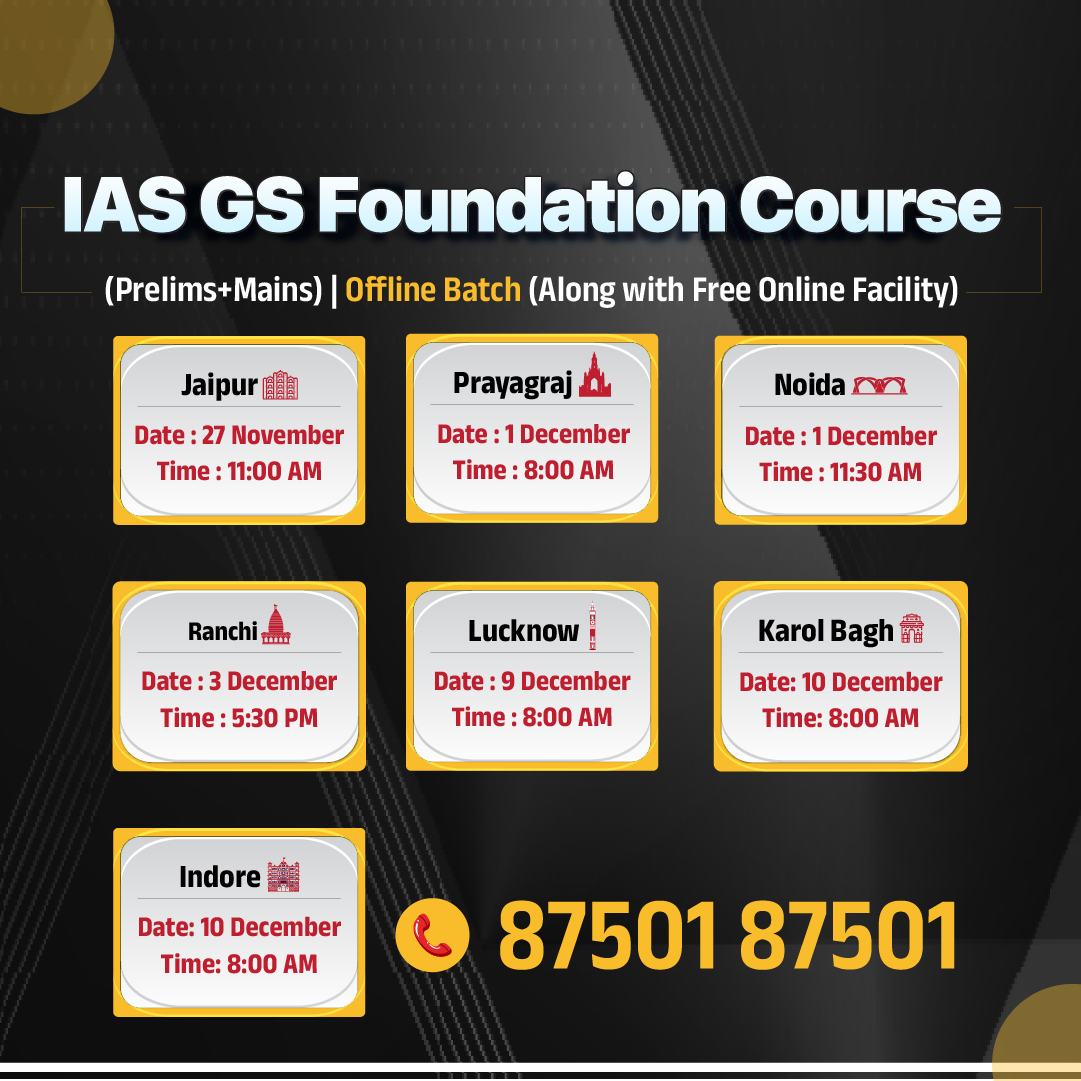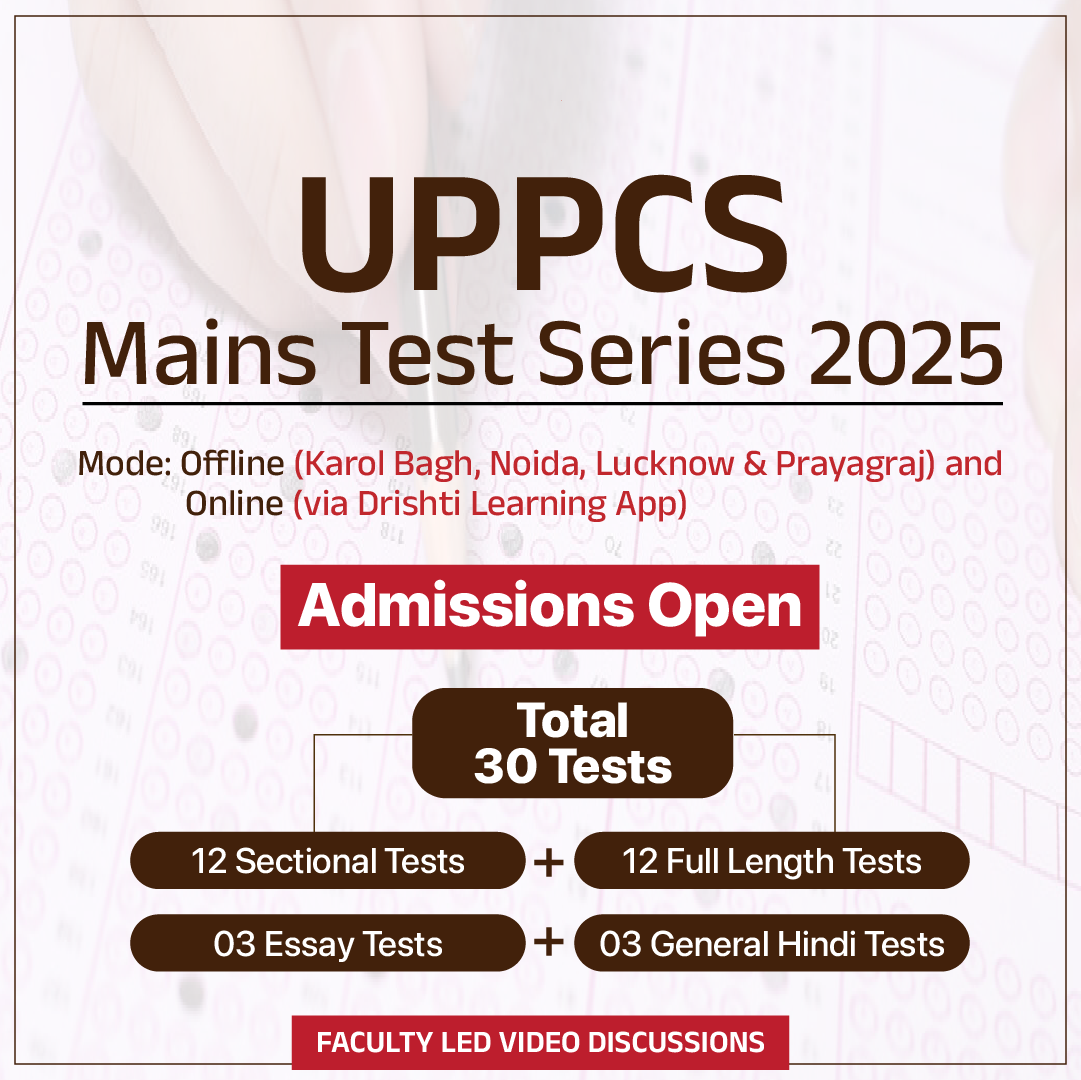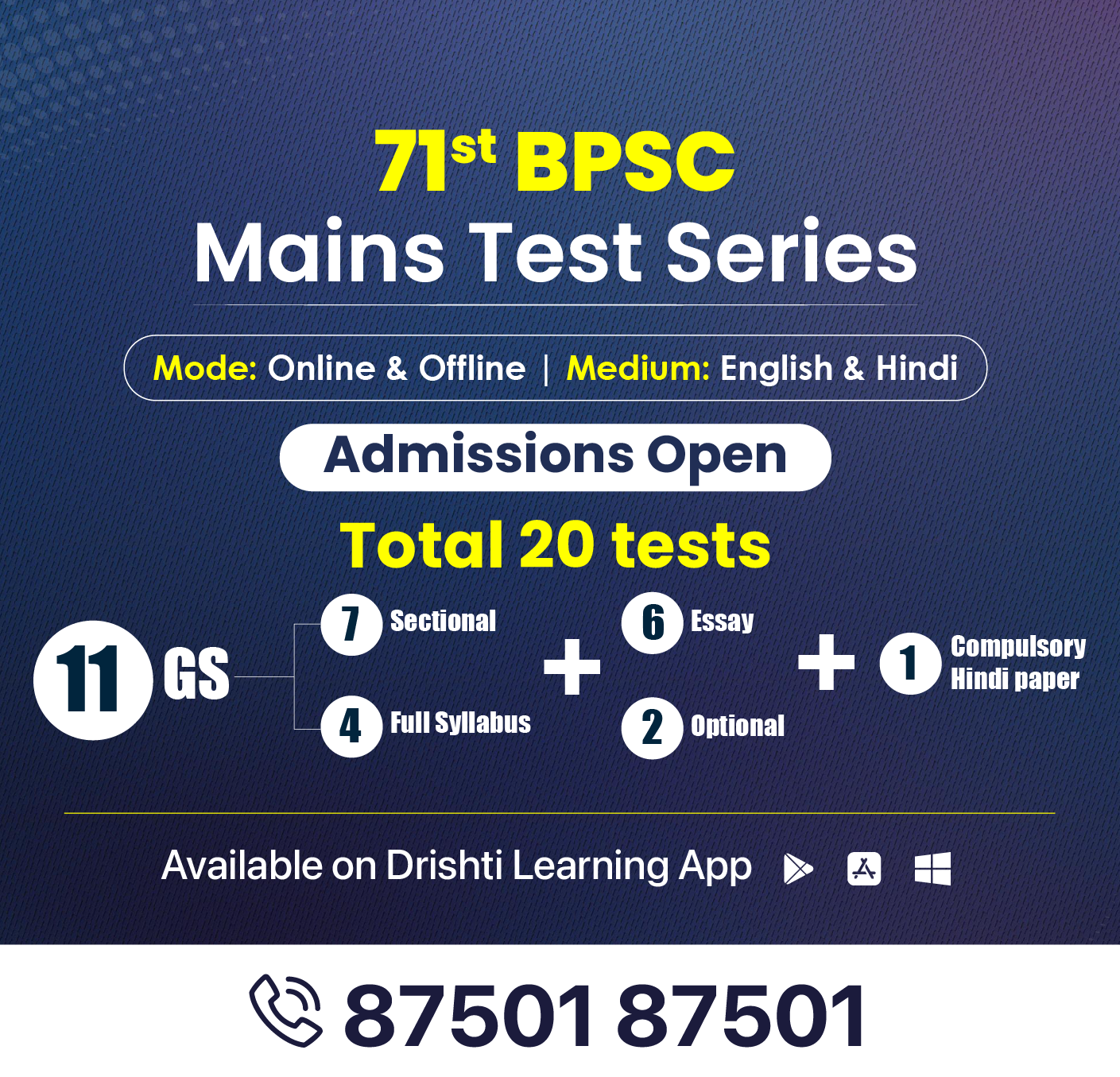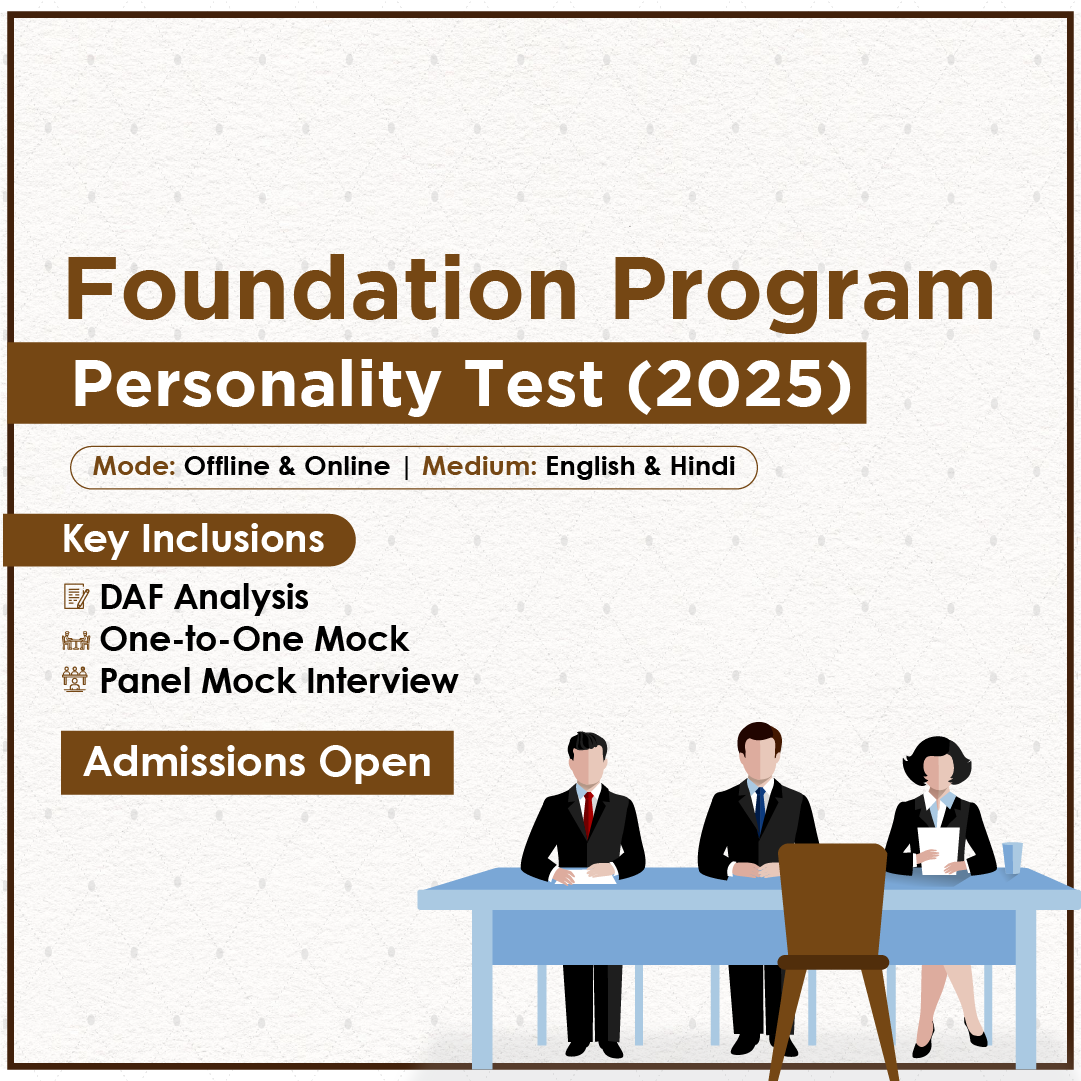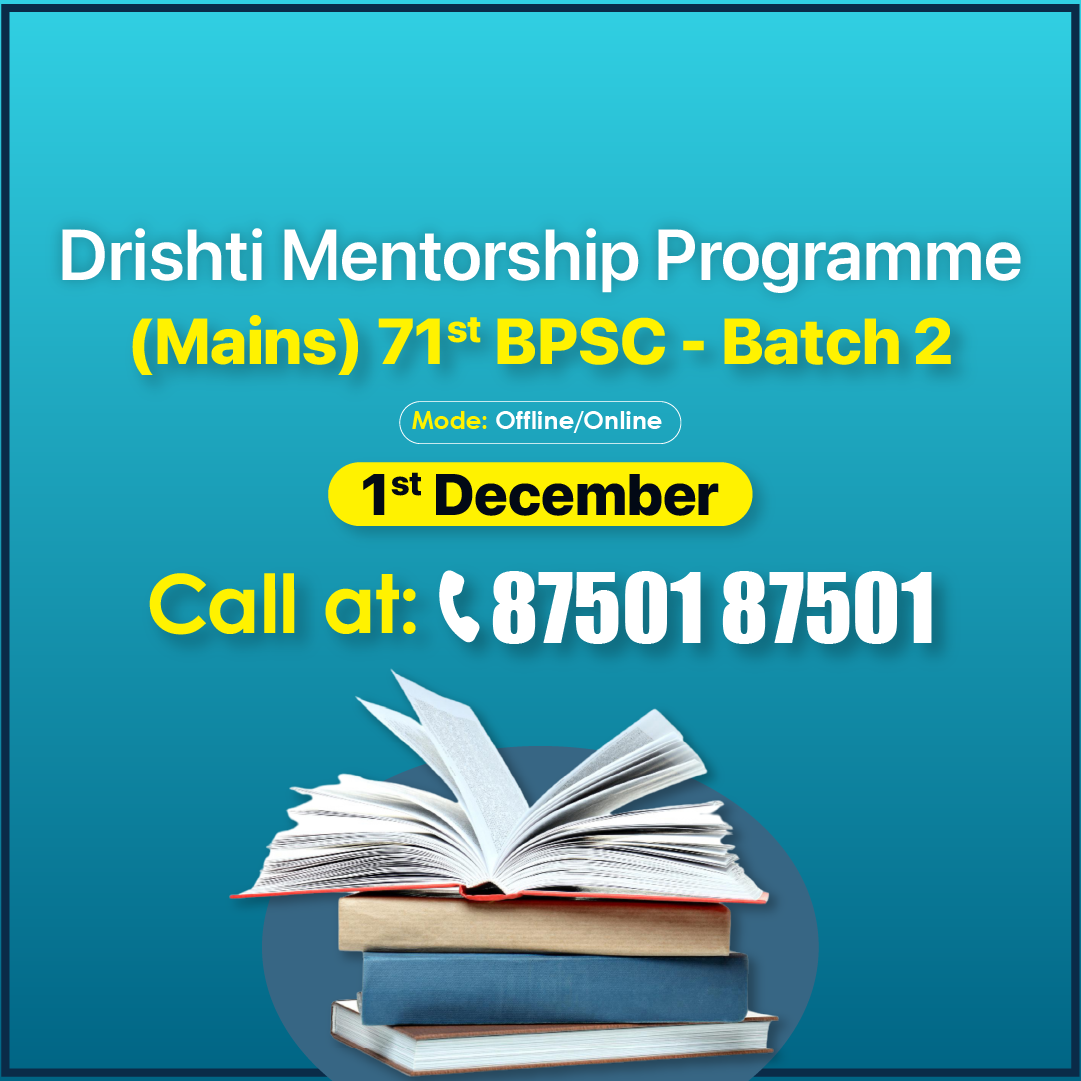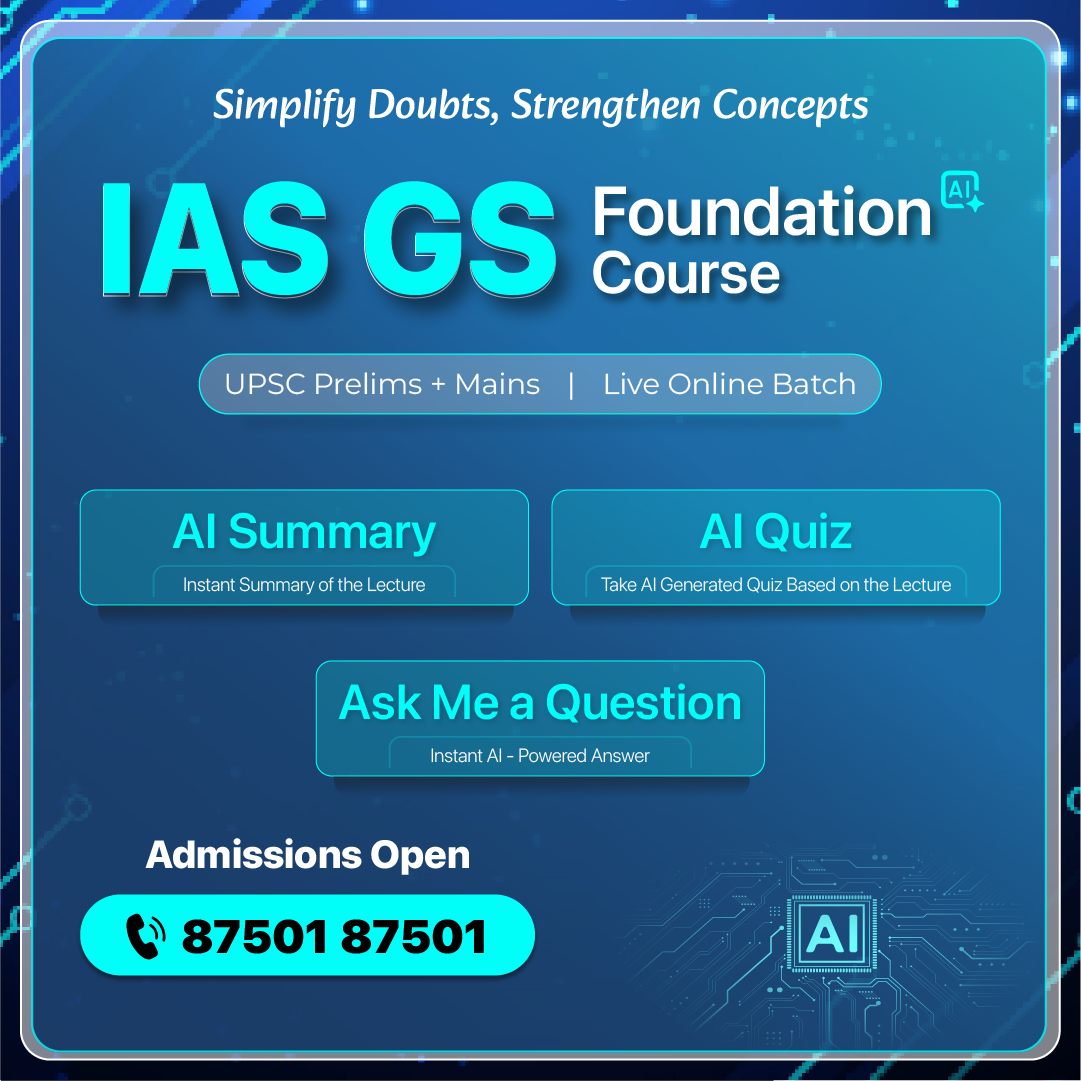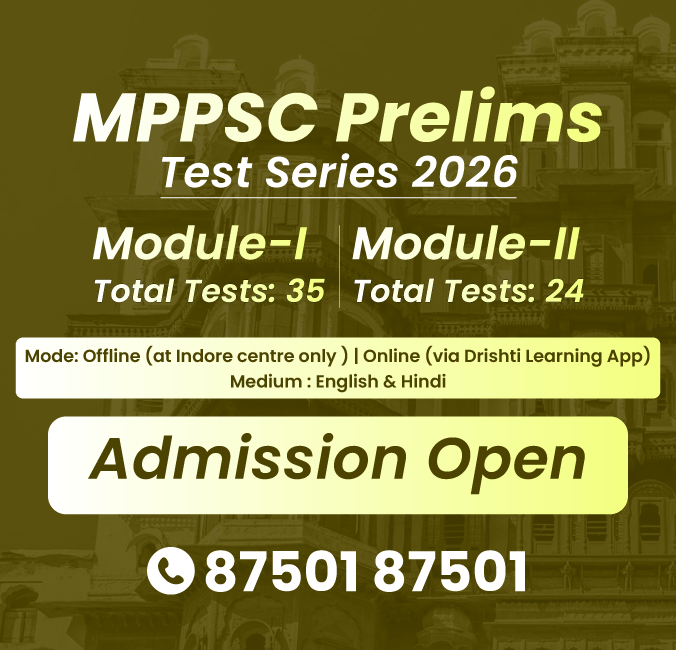Daily Free UPSC Mains Answer Writing Program
Prepare effectively for the UPSC Civil Services Mains Examination with our exclusive Daily Free Mains Answer Writing Practice Program tailored to meet the demands of UPSC aspirants. This program offers two UPSC-standard questions daily, meticulously designed to reflect the latest exam trends.
Each question is crafted to integrate current affairs with static topics, enabling aspirants to develop a well-rounded understanding of the syllabus. To help you excel, we provide detailed model answers/reference materials, equipping you with the tools to structure impactful responses and achieve high scores.
Our program also includes free answer evaluation. Aspirants can submit their answers and receive expert feedback to refine their writing skills. The evaluations focus on enhancing clarity, coherence, and precision—hallmarks of high-scoring answers in the Mains. Additionally, we offer guidance on essay writing, featuring well-researched topics, enriching reference materials, and free essay evaluations, empowering aspirants to excel in this crucial section of the exam.
Schedule for Daily Mains Answer Writing Program
| Day | Focus Area |
|---|---|
| Monday | GS Paper 1 – Indian Heritage, Culture, History, and Geography of the World and Society |
| Tuesday | GS Paper 2 – Governance, Constitution, Polity, Social Justice, and International Relations |
| Wednesday | GS Paper 3 – Economic Development, Science & Technology, Biodiversity & Environment, Security, and Disaster Management |
| Thursday | GS Paper 4 (Theoretical Questions) – Ethics, Integrity, and Aptitude |
| Friday | GS Paper 4 (Case Study) – Practical Ethical Scenario |
| Saturday | Essay Writing – Dynamic and well-researched topics |
Total Questions : 2940
-
Q. The bank nationalization in 1969 did India more harm than good. Critically examine. (250 words)
04 Oct, 2021 GS Paper 1 History -
Q. The 'Quit India' movement, more than anything, united the Indian people against British rule. Discuss. (150 Words).
01 Oct, 2021 GS Paper 1 History -
Q. All human beings aspire for happiness. Do you agree? What does happiness mean to you? Explain with examples. (150 Words)
30 Sep, 2021 GS Paper 4 Theoretical Questions -
Q. ‘Antimicrobial resistance is one of the biggest challenges of modern medicine.’ Discuss. Also suggest some measures to deal with the issue. (250 Words).
29 Sep, 2021 GS Paper 3 Science & Technology -
Q. The noble purpose of the anti-defection law is to bring stability to governments. However, it is sometimes said to be against the true spirit of democracy. Discuss. (150 Words)
28 Sep, 2021 GS Paper 2 Polity & Governance -
Q. Food fortification is the new panacea for nutritional deficiency in the Indian population. Critically discuss. (250 Words)
27 Sep, 2021 GS Paper 1 Geography -
Essay Topic
Disasters cannot be totally prevented but their impact can be reduced.
25 Sep, 2021 Essay Essay -
Q. Ethics of society at large is reflected in any organization’s work culture. Discuss. (150 Words)
24 Sep, 2021 GS Paper 4 Theoretical Questions -
Q. What do you understand by natural law ethics? Discuss with examples the criticism of this branch of ethics. (150 Words)
23 Sep, 2021 GS Paper 4 Theoretical Questions -
Q. It is beilieved that monetising underutilised public assets will bring in required capital and help build new infrastructure to boost the economy. Discuss the statement in light of the recently launched National Monetisation Pipeline. (250 Words)
22 Sep, 2021 GS Paper 3 Economy -
Q. Indian women have taken a great stride in all fields of activity, yet a lot remains to be achieved. In the light of the statement discuss the need to relook into various issues related to women's education especially higher education. (250 Words)
21 Sep, 2021 GS Paper 2 Social Justice -
Q. Gupta period in ancient India is noted for its achievements in the arts, architecture, sciences, religion, and philosophy. Comment. (150 Words).
20 Sep, 2021 GS Paper 1 Indian Heritage & Culture -
Essay Topic
Only a life lived for others is a life worthwhile.
18 Sep, 2021 Essay Essay -
Case Study
Abhishek Singh hails from an influential family of landlords. Being educated in Delhi in a top notch college he developed a preference for the civil services and got selected in the IRS and joined as an Income Tax Officer. Even after joining civil service he could not control the nightlife culture of visiting discotheque and night clubs with friends and getting inebriated.
Nowadays he is invariably out every weekend and can never come punctually to the office. Monday mornings are important in his office because the Commissioner takes a review of results achieved in the last week and plans for the ensuing week. Being late in the office every time, he tries to fabricate a story and explain the delay. His overall performance being good he has not attracted adverse notice of the bosses yet, but his immediate subordinates know why he is late.
What are the ethical issues involved in the present case? What are the alternatives available to Abhishek and choose the most appropriate alternative.
17 Sep, 2021 GS Paper 4 Case Studies -
Q. What do you understand by ethical responsibility? What are the commonly recognised ethical responsibilities of government servants? (150 Words)
16 Sep, 2021 GS Paper 4 Theoretical Questions -
Q. ‘The US is one of the largest trading partners of India at present.’ In the light of the statement discuss the issues prevalent in the trade relations of the two countries. (250 Words)
15 Sep, 2021 GS Paper 3 Economy -
Q. SCO has emerged as a key regional organisation in the Eurasian space. In the light of the statement discuss the opportunity for India to fulfil its national interest. (250 Words)
14 Sep, 2021 GS Paper 2 International Relations -
Q. ‘France and the United States are rightly considered the birth places of modern democracy.’ Discuss the statement in the light of the French and American revolution.
13 Sep, 2021 GS Paper 1 History -
Essay Topic
Recover Better - Stand Up for Human Rights.
11 Sep, 2021 Essay Essay -
Q. What do you understand about disaster-resilient infrastructure? Highlight the role that can be played by the Coalition for Disaster Resilient Infrastructure (CDRI) in this regard. (250 words)
10 Sep, 2021 GS Paper 3 Disaster Management -
Q. Define the following terms: (150 words)
(a) Altruism
(b) Humility
(c) Power and Morality
09 Sep, 2021 GS Paper 4 Theoretical Questions -
Q. How illegal migration in India is one of the major internal security challenges. Also discuss the existing legal framework to deal with the issue. (150 Words).
08 Sep, 2021 GS Paper 3 Internal Security -
Q. BRICS grouping succeeded up to a point but it now confronts multiple challenges due to changes in the geopolitical order. Comment. (250 words)
07 Sep, 2021 GS Paper 2 International Relations -
Q. India is on the right side of demographic transition that provides a golden opportunity for its rapid socio-economic development, if policymakers align the developmental policies with this demographic shift. Discuss. (250 Words)
06 Sep, 2021 GS Paper 1 Indian Society -
Essay Topic
If you fail to prepare, you prepare to fail.
04 Sep, 2021 Essay Essay -
Q. Recently announced National Mission on Edible Oil-Oil Palm will help India become self-reliant in edible oil and reduce dependence on imports. Critically discuss. (250 Words).
03 Sep, 2021 GS Paper 2 Polity & Governance -
Q. Free media (including social media) has an important role in the fight against corruption. Comment. (150 Words)
02 Sep, 2021 GS Paper 4 Theoretical Questions -
Q. India stands a better chance of reaching the destination of a predominantly clean system if it makes natural gas the “next stop” in its energy journey. Discuss. (250 Words)
01 Sep, 2021 GS Paper 3 Bio-diversity & Environment -
Q. The efficiency of the collegium system has been challenged time to time in terms of its independence and transparency of judicial appointments. Critically examine. (250 Words)
31 Aug, 2021 GS Paper 2 Polity & Governance -
Q. What do you understand by Black Carbon? Discuss its impacts on the melting of glacier. (150 Words)
30 Aug, 2021 GS Paper 1 Geography


